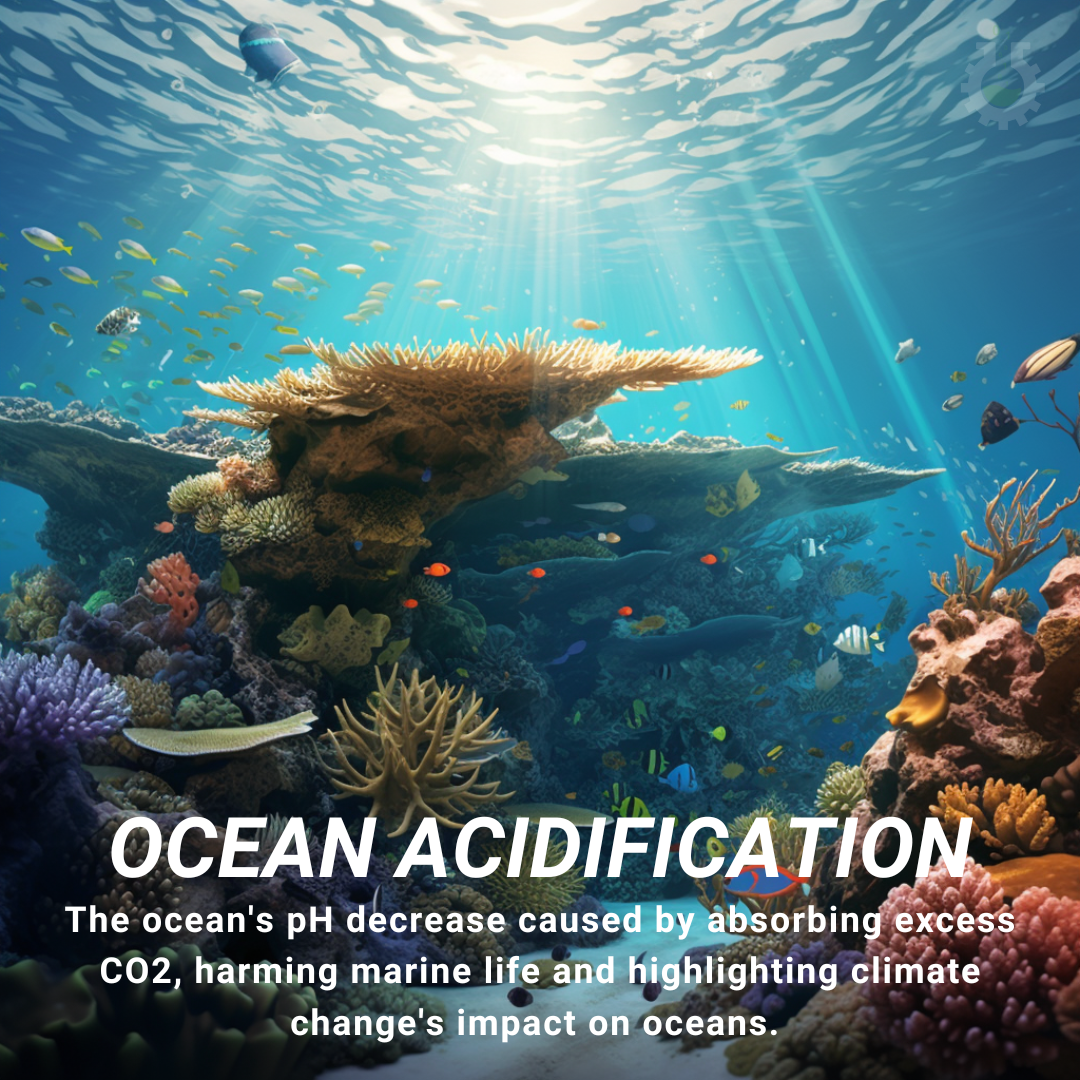September 5, 2023
Climate Change Poster Collection of the Day – Ocean Acidification
Book a Demo
Today’s Climate Change Poster Collection highlights Ocean acidification, a significant environmental challenge that the world is currently grappling with, largely due to the increase in carbon dioxide emissions resulting from human activities. This phenomenon occurs when the ocean absorbs a substantial portion of carbon dioxide from the atmosphere, leading to a decrease in the pH of ocean water. Essentially, the ocean serves as a carbon sink, absorbing approximately one-third of carbon dioxide produced by human activity, such as burning fossil fuels. This absorption process results in the formation of carbonic acid, a key player in the acidification of our oceans.
The increase in ocean acidity has detrimental effects on marine life, particularly on organisms like corals, mollusks, and certain plankton. These creatures have shells or skeletons composed of calcium carbonate, a substance that is highly sensitive to changes in pH levels. Elevated acidity levels in the ocean lead to a decrease in available carbonate ions, a vital component of calcium carbonate. This decrease weakens the shells of these marine creatures and inhibits their growth, disrupting the natural life cycle of these species.
Beyond individual marine species, ocean acidification has far-reaching implications for entire marine ecosystems. The acidification process can disrupt the balance of these ecosystems, influencing fish populations, and potentially affecting human societies that rely on these ecosystems for their livelihood and food sources. Approximately 25% of carbon dioxide emissions are absorbed by the ocean, which causes a change in the chemistry of seawater and leads to acidification.
Interestingly, ocean acidification can also alter fish behavior, making them more vulnerable to predators and causing difficulty in returning to spawning areas. This impacts food chains and ecosystems, potentially leading to a decrease in fish populations and a subsequent decrease in food sources for humans and other marine creatures.
Yet, despite these sobering facts, there is a glimmer of hope. Public education on ocean acidification, its effects on marine ecosystems, and the promotion of sustainable practices are vital steps in the right direction. These efforts can aid in the development of strategies to reduce CO2 emissions and protect the health of our oceans. Therefore, while ocean acidification is currently a significant issue, through collective action and commitment to sustainable practices, we can work towards a future with healthier, more resilient oceans.
Discover an inspiring collection of climate change posters.



